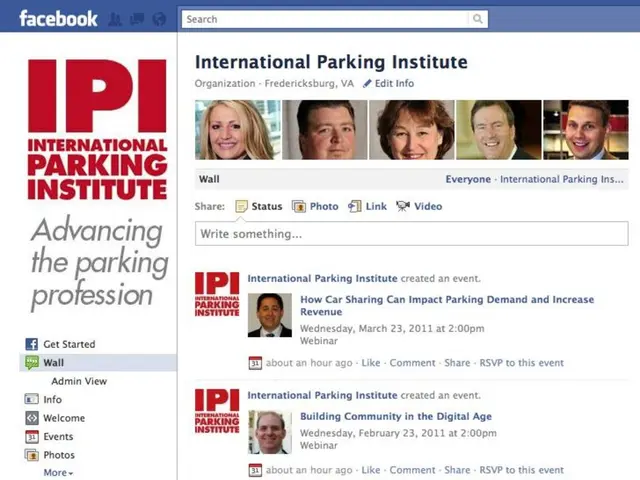1. Overbearing Statements Chosen by Self-Entitled Individuals, Irritatingly Prompting an Exit
Titled individuals often display narcissistic and self-centered behaviors, prioritizing their own needs over those of others. These individuals are characterized by their tendencies to hurt others for their own benefit, manipulate situations to their advantage, and dismiss the struggles, needs, and emotions of others to make room for their own. This behavior stems from internal anger, insecurity, and resentment, but also serves as a way to cope with the discomfort and turmoil they may experience in their daily lives.
Entitled individuals frequently use certain phrases that can be off-putting and make others want to leave a conversation. Here are 11 phrases that are often used by entitled individuals:
- "I'm just being honest" – This phrase is often used as a justification for their selfish behavior, allowing them to excuse their hurtful language and actions.
- "Let me speak to your manager" – Entitled individuals may use this phrase to assert their superiority or attempt to control others.
- "I'm not paying for that" – This phrase is frequently used by entitled individuals to cause a scene and demand what they want, even if it means disrespecting service workers.
- "It's not my fault you don't understand" – Selfish individuals tend to believe they are entitled to the full attention and respect of others and may use this phrase to invalidate others' feelings.
- "I don't take no for an answer" – Entitled individuals use this phrase to push their boundaries and force others to give in to their demands.
- "I have high standards" – This phrase may be used by entitled individuals to justify their unreasonable expectations and high demands from others.
- "I don't see what the big deal is" – Individuals who are self-centered may dismiss others' concerns and make excuses for their actions by using this phrase.
- "It must be nice" – This subtle attack is used by entitled individuals to minimize others' success and create feelings of envy and inadequacy in themselves.
- "I'm sorry you feel that way" – Rather than taking accountability for their actions or mistakes, entitled individuals may use this phrase to shift the blame onto the people they have hurt.
- "I have friends like that" – Entitled individuals may use this phrase to making excuses for their lack of advocacy and avoid taking responsibility for injustices that benefit them.
- "You owe me" – Entitled individuals may manipulate relationships by implying that they are owed something from others or they may use guilt as a tool to control others.
These phrases and behaviors can create friction in personal and professional relationships and impede effective communication. It is important for individuals to recognize entitled behavior in themselves and others and strive for empathy and understanding in their interactions.
Zayda Slabbekoorn is a staff writer with a bachelor's degree in social relations and policy and gender studies. She focuses on psychology, relationships, self-help, and human interest stories.
References:[1] Psychology Today. (n.d.). Narcissistic personality disorder. Retrieved July 16, 2023, from https://www.psychologytoday.com/us/basics/narcissistic-personality-disorder[2] Mayo Clinic Staff. (2019, December 18). Narcissistic personality disorder. Retrieved July 16, 2023, from https://www.mayoclinic.org/diseases-conditions/narcissistic-personality-disorder/symptoms-causes/syc-20377472[3] American Psychiatric Association. (2013). Diagnostic and statistical manual of mental disorders (5th ed.). Washington, DC: Author.[4] Narcissism quiz. (n.d.). HealthLine. Retrieved July 16, 2023, from https://www.healthline.com/health/quiz-narcissisms[5] Psych Central. (n.d.). 7 things entitled people do that most people find annoying. Retrieved July 16, 2023, from https://psychcentral.com/health/7-things-entitled-people-do-that-most-people-find-annoying
Zayda Slabbekoorn, a staff writer, combines her background in social relations and policy, gender studies, and psychology to delve into stories on relationships, self-help, and human interest. With a keen focus on understanding the complexities of human behavior, she routinely shares compelling stories, advice, and insights on love, mental health, lifestyle, mental-health, health-and-wellness, and fashion-and-beauty.
In her latest piece, Slabbekoorn discusses entitled behavior, a pattern often linked to narcissistic personality disorder. In the article, she outlines 11 common phrases used by titled individuals, who are characterized by their tendencies to prioritize their own needs over others, hurt those around them for personal gain, manipulate situations, and dismiss others' struggles and emotions. These behaviors can create friction in personal and professional relationships and make for less effective communication.
Slabbekoorn advises readers to recognize entitled behavior in themselves and others, stressing the importance of empathy and understanding in maintaining healthy relationships and establishing positive communication patterns that foster personal and collective growth.
For more information on narcissistic personality disorder, readers are encouraged to consult sources such as Psychology Today, Mayo Clinic, the Diagnostic and Statistical Manual of Mental Disorders (5th ed.), HealthLine, and Psych Central. By building knowledge and understanding around this complex condition, individuals can learn how to better navigate and manage encounters with entitled individuals, and develop the skills needed to foster healthier, more fulfilling relationships.








